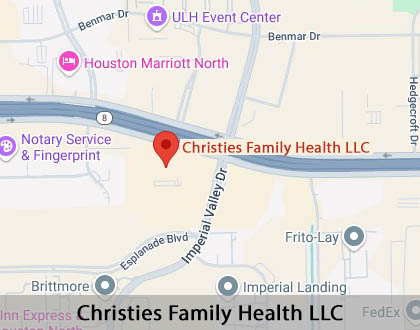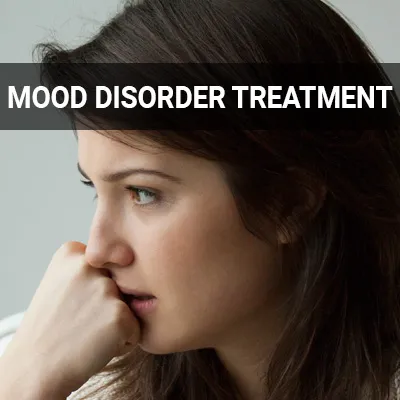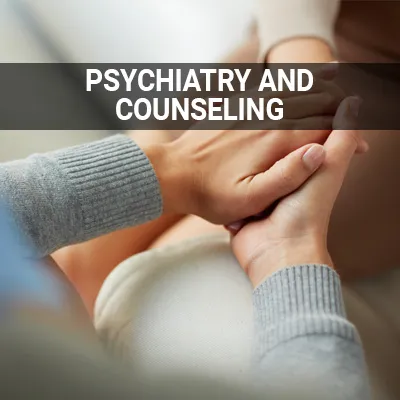Grief Counseling Houston, TX
Grief counseling, a form of therapy, helps people cope with varying types of loss, from the passing of a loved one to a broken heart. Grief can induce physical, emotional, social, spiritual, and cognitive feelings or responses. Counseling provides the support and guidance many people need, especially from a trained therapist who works primarily with patients experiencing grief.
Grief counseling is available at Christies Family Health LLC in Houston, and the surrounding area. Our team is specially trained to help diagnose and treat patients suffering from grief for various reasons. Call us today at (832) 915-1818 to schedule an appointment or learn more about our services.
Understanding Grief Counseling
Understanding grief is the first step to coping and recovering from this overwhelming feeling that at times may limit our way of living life normally. Grief is a normal human response to any loss, whether it be a loved one, a home, a job, or a pet. There are five stages of grief: denial, anger, bargaining, depression, and acceptance. These come in waves and differ in length for each individual. In grief counseling, we attempt to help patients work through these stages more effectively.
Grief counseling falls under the umbrella of individual talk therapy. A grief counselor may be a psychologist, social worker, therapist, or psychiatrist specializing in treating patients with grief. To become a qualified grief counselor, one must complete a bachelor's degree and master's degree in a related field, complete graduate and postgraduate internship experience, pass any required exams for certification/licensure, apply for licensure and additional certifications, and stay up to date on grief and mental health counseling. It is important to research and look for a qualified or licensed therapist in each unique case.
“In grief counseling, we attempt to help patients work through these stages more effectively.”
Benefits of Grief Counseling
The foremost important benefit of grief counseling is a trained professional's ability to help patients work through their grief at their own pace. We understand that everybody is different, as is their situation and coping methods. Individuals who learn to understand their grief and ride the waves are less likely to fall back into a stage after they have passed acceptance.
Aside from helping patients cope, grief counseling has many other benefits, including:
- Addressing feelings of guilt
- Allowing the expression of emotions
- Building a strong support system
- Coming to terms with reality
- Treating trauma
Although some people can cope with grief and reach the acceptance stage on their own, many people cannot or do not know that they are still in a stage of grief. This can lead to complicated grief, a more severe form of grief in which symptoms are intensified and last for longer periods of time.
“Individuals who learn to understand their grief and ride the waves are less likely to fall back into a stage after they have passed acceptance.”
The Grief Counseling Process
Grief counseling begins with an initial consultation and assessment. The first visit is dedicated to learning about one another and understanding the patient's case. It is important to form a bond and mutual connection to build trust and help them through the remainder of the sessions. We will also go through and discuss the patient's mental and physical health history and any other pertinent information regarding their situation or loss.
A professional assessment allows the counselor or therapist to understand the situation, backstory of any preexisting relationship, and severity of the patient's grief. It can also assess the patient's risk factors and relapse levels. This information helps us formulate a more individualized treatment plan and focus sessions on the most needed aspects. After the first few sessions, we will inform the patient of the amount and frequency of sessions they may need and make any adjustments.
“A professional assessment allows the counselor or therapist to understand the situation, back story of the relationship, and severity of their grief.”
Check out what others are saying about our mental wellness services on Yelp: Grief Counseling in Houston, TX
When to Seek Grief Counseling
Individuals are more likely to seek grief counseling when they acknowledge that they are dealing with grief. To do so, they must assess the feelings, emotions, symptoms, and responses happening and pinpoint the root cause. Common causes of grief include losing a job, home, natural disaster, bereavement, depression, broken heart, or traumatic events such as war or abuse.
It becomes critical to seek grief counseling when an individual begins to exhibit signs of depression: feeling like life is not worth living, wishing to have died with or before their loved one, blaming themselves for the loss, or feeling numb/disconnected from others. They may start having difficulty trusting others or unable to perform daily tasks as they normally would. Grief counseling can help curb these symptoms and feelings before they worsen and become debilitating.
“Common causes of grief include losing a job, home, or natural disaster, bereavement, depression, broken heart, or a traumatic event such as war or abuse.”
Questions Answered on This Page
Q. What are the benefits of grief counseling?
Q. How does the grief counseling process go?
Q. When should one seek grief counseling?
Q. How does grief counseling help one adapt to normal life?
People Also Ask
Q. What are some of the different types of therapists?
Adapting to Grief Counseling in One’s Lifestyle
Grief is inevitable and happens to everyone at some point in time. Therapists receive the training to listen from the heart without judgment, speaking with knowledge and experience. Counseling and therapy help patients manage their grief through proven coping techniques such as:
- Dealing with any guilt they are feeling and help them understand the grief
- Distinguishing grief from trauma
- Talking about the deceased or other loss
Understanding the feelings and emotions that come with grief can help patients manage and cope with the waves as they come. Having a professional guide them through it allows them to separate their feelings from the reactions they may put out. Counseling also provides the patient with ways to live their life with grief and helps them get back to their normal routine.
“Understanding the feelings and emotions that come with grief can help patients manage and cope with the waves as they come.”
Frequently Asked Questions About Grief Counseling
Q. How do I find a grief counselor?
A. In many cases, patients are referred to a grief counselor by their primary care physician, therapist, or psychiatrist if they have one. Someone experiencing grief can seek a grief counselor or therapist themselves, and at times, their loved ones help them find one that suits their lifestyle.
Q. Is grief counseling covered by insurance?
A. Under the Affordable Care Act, many insurance companies began covering mental health conditions and services such as grief counseling. We recommend patients contact their insurance provider to better understand what their plan entails.
Q. What do you talk about in grief counseling?
A. After developing a strong relationship, and the patient is comfortable, we can talk with them about the deceased person or the loss they experienced. We often discuss the situation, how the patient felt before and after the loss, and how they feel on their own. We can also talk about anything the patient finds they would like to talk about.
Q. How does grief counseling help?
A. Having adequate support is a crucial part of letting go and passing through the grief process. A grief counselor is specially trained in advising and helping patients through this period and the waves that come with it. They also help patients create their own coping methods that will allow them to help themselves going forward.
Q. When does grief become a problem?
A. Grief is a normal human reaction to loss. However, people who experience depression, anxiety, or other mental, physical, or emotional symptoms because of it are likely facing complicated grief, which can be a dangerous condition. Symptoms such as lack of interest, lack of desire to live or do the things they once did, inability or unwillingness to eat, move, or sleep are common signs of complicated grief.
Change Is Possible – Call Us Today
Life isn't always easy. Are you struggling? Are you looking for a highly personalized and professional approach tailored to your individual needs? Instead of waiting around, call us today. You should know that there is hope for a better tomorrow.
Definitions
Call Us Today
Everybody faces grief at some point in their lives. Seeking support is the first step in taking back charge of your life. Call us today at 832-915-1818 to schedule an appointment or learn more about our services.
Helpful Related Links
- Agency for Healthcare Research and Quality. Agency for Healthcare Research and Quality. 2024
- American Psychiatric Association (APA). American Psychiatric Association (APA). 2024
- Psychology Today. Psychology Today. 2024
- The American Board of Professional Psychology. The American Board of Professional Psychology. 2024
- The American Journal of Psychology. The American Journal of Psychology. 2024
- The National Association of Behavioral Healthcare. The National Association of Behavioral Healthcare. 2024
About our business and website security
- Christies Family Health LLC was established in 2021.
- We accept the following payment methods: American Express, Check, Discover, MasterCard, and Visa
- We serve patients from the following counties: Harris County
- We serve patients from the following cities: Houston, Aldine, Jersey Village, Humble, and East Aldine
- Norton Safe Web. View Details
- Trend Micro Site Safety Center. View Details
Back to top of Grief Counseling

















